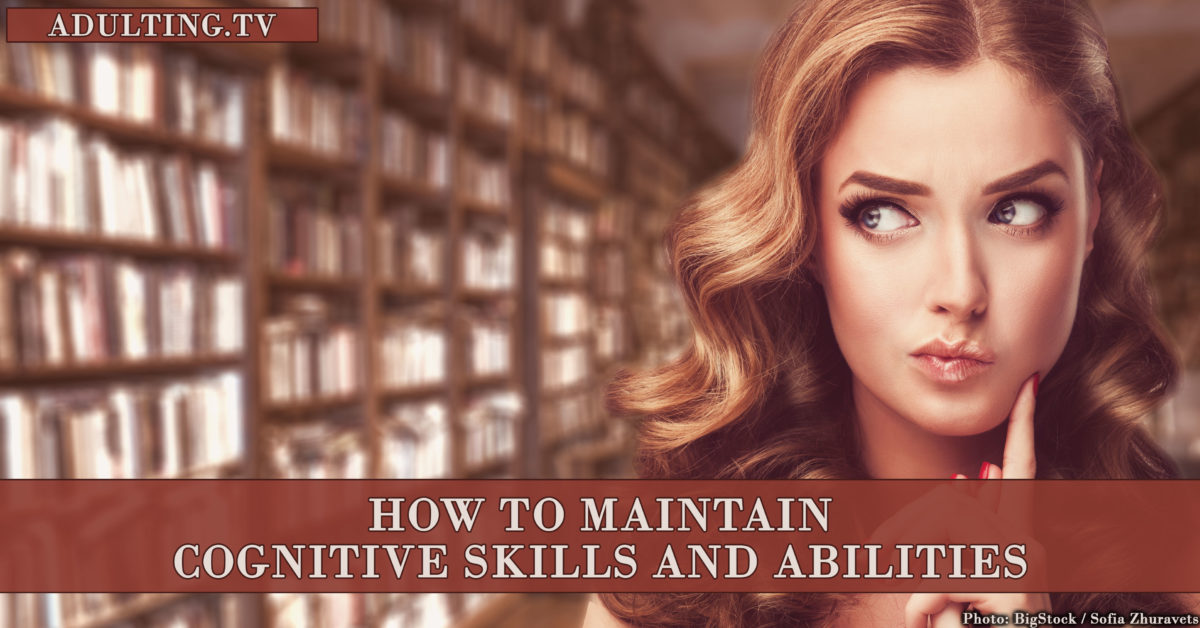Why is the scenario below a common occurrence in my everyday life?
Me: Hi, I’m John.
Maximus Lazarus Falcon: Hi, John. I’m Maximus Lazarus Falcon.
Me: It’s nice to meet you.
Maximus Lazarus Falcon: It’s nice to meet you, too.
Me: Um, what’s your name again?
Now that I’m in my 40s, one might claim that I’m starting to suffer from a decline in cognitive skills. Au contraire! I’ve always lacked such cognitive skills. I’ve been struggling to remember people’s names for as long as I can remember anything.
What are cognitive skills?
As LearningRx.com says, “Cognitive skills are the core skills your brain uses to think, read, learn, remember, reason, and pay attention. Working together, they take incoming information and move it into the bank of knowledge you use every day at school, at work, and in life.”
A common belief is that we lose our cognitive skills as we age. The truth is that we gain our cognitive skills between birth until about 18 to 20 years old. At that point, some cognitive skills decline, and some continue to improve. Even in our older age, as some cognitive skills decline, other stay stable.
The reason why I couldn’t remember people’s names in my 20s is likely because I lacked cognitive attention skills. I’m not ADD or ADHD. I just lacked and maybe continued to lack solid cognitive attention skills. As I age, my inability to recall people’s names whom I’ve met less than six times (apparently) could be attributed to a decline in my cognitive memory skills.
What cognitive skills tend to improve with age?
Cognitive intelligence skills tend to improve and outperform younger people only because older people have acquired more knowledge and experience over time. Likewise, reason and problem-solving skills tend to develop because every year a person doesn’t die they’ve rationalized and solved more problems. Coming up with a solution for an older person may take longer than for a younger person, but they can find a solution, and often a better one, because of their history. Consequently, wise people in movies, think Yoda, tend to be or look much older.
Another cognitive skill that may improve or, at least, stay consistent until much later in life is cognitive attention skills . Therefore, a three-year-old can’t sit still for three minutes, and a 40-year-old can listen to a two-hour lecture on cognitive skills.
Another cognitive skill that typically improves or maintains homeostasis is language proficiency. Older people have lived longer and, therefore, have heard, read and used more words. An expected improvement is vocabulary is why we expect our wise, old sages to use more than one and two-syllable words or to use more than 140 characters to make important policy decisions.
What cognitive skills tend to decline with age?
Aging isn’t all roses and sunshine. Some cognitive skills do decline. That’s why you get upset when driving behind an older person.
Memory is often the first cognitive skill to be recognized as declining. By now, it’s almost expected and, at first, it’s humorous. I have three nieces and no matter whose name I’m trying to recall, I always recall the other two first. This why we chuckle when we walk into another room to get something only to forget the very thing we went into that room to get.
Of course, the humor may someday end. For this reason, it’s scary when an older adult goes missing. We’ve all heard the stories of older people who went for a drive and ended up hundreds of miles away in another state.
How can you maintain or slow the decline of cognitive skills?
As with our physical and mental health, best maintaining cognitive skills comes down to “use it or lose it.” That is, of course, unless there are extenuating circumstances such as an illness, accident or disease.
Exercise more
Also along the lines of physical and mental health, physical exercise is one of the best ways to fight the decline of cognitive skills. Studies show that just 60-minutes of exercise three times a week has a positive effect on cognition. So, get moving, no matter how old you are. I recently read that 40 is the new 20. Join me in getting fit!
Stimulate your brain
Learn something new. Try a new hobby. Watch documentaries and foreign language movies. Read more, especially on topics that make you think. Play games such as crossword puzzles, chess, Trivial Pursuit, Jeopardy, Poker, Rummy and even Memory.
All these will make your brain work and keep it working longer. So, start playing, just avoid betting when playing. For more brain stimulation, add more culture to your life.
Stay positive and reduce stress
Depression and isolation have been shown to have an adverse effect on the elderly in numerous ways, including causing a decline in cognitive skills. Research indicates that “not only do we know of the cognitive deficits present during acute depression episodes but we also know that some cognitive deficits do not completely go away even when depression is in remission.”
Look for ways to stay social and engaged with friends and family. As we age, we tend to want to stay home. This is the exact opposite of what we should do.
It’s, also, beneficial for us to engage in creative ways to stay positive. It’s impossible to stay depressed when you’re dancing naked in your living room or surrounded by amazing people – but maybe don’t do both at the same time – well, why not? Go ahead and dance naked in your living room surrounded by awesome people.
The takeaway is that some decline in cognitive skills is inevitable, however, in many cases, we can at least slow that decline. Likewise, some things get better with age, so it’s not all negative. The more aware we are of the signs of declining cognitive skills and the more steps we take to slow that decline, the better.






